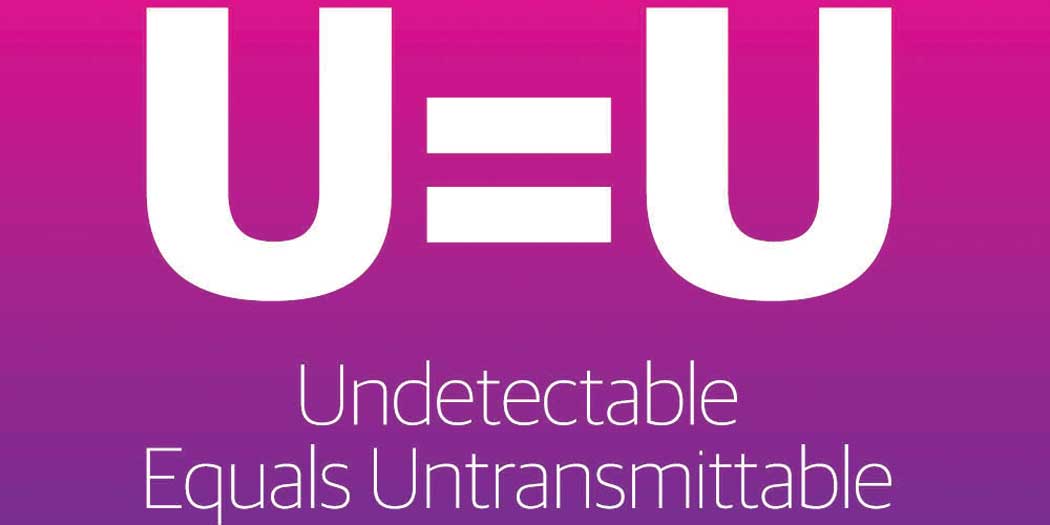Each month in Boyz the team from NAM aidsmap report the latest news on HIV and sexual health. You can also keep up to date and read more on their website at aidsmap.com.
Doctors should tell everyone with HIV that if they have an undetectable viral load, they can’t pass it on.
Undetectable = Untransmittable (U=U) is a phrase reminding us that people who are taking effective HIV treatment cannot pass HIV on to their sexual partners. Undetectable means that there is not enough HIV in a person’s blood to pass on to someone else. As a result of effective HIV treatment, 95% of all people with diagnosed HIV in the UK are undetectable. They can’t pass the virus on.
U=U is an important piece of information for everyone to know, especially anyone who is dating and meeting new sexual partners. It’s an empowering fact for people living with HIV. But not all doctors have kept up to date with the scientific research, while some healthcare workers still have worries about people’s sexual behaviour changing if they learn that Undetectable = Untransmittable.
Surveys of doctors show that not all of them talk about the U=U message when they tell their patients that their viral load is undetectable. This has been strongly criticised by two leading doctors, writing in the medical journal The Lancet HIV.

“Providers caring for patients with HIV should universally inform their patients about U=U as part of their routine care,” said Dr Sarah Calabrese of George Washington University and Professor Ken Mayer of the Harvard Medical School. “Conveying benefits and risks surrounding any treatment is fundamental to patients’ decision making, and this HIV treatment benefit should be no exception.”
At a recent conference, Dr Carrie Foote of Indiana University described this as a human rights issue. “All people living with HIV have a right to accurate information about their social, sexual and reproductive health,” she said.
She quoted an American man who talked about the impact learning about U=U has had on him personally. “When I finally internalised this message… something suddenly lifted off of me that is hard to describe,” he said. “It was almost as if someone wiped me clean. I no longer feel like this diseased pariah.”
Read more at aidsmap.com/page/3465661 and aidsmap.com/page/3466390
HPV vaccination for gay and bi men
HPV stands for human papillomavirus. Infection with HPV is often harmless, but some strains can cause genital and anal warts. Other strains can lead to anal, cervical, oral or throat cancer.
There are vaccines to prevent HPV and these have been given to girls aged 12 and 13 for several years. Last year, the NHS finally bowed to pressure and announced that it would also vaccinate boys of the same age group. That is the best way to ensure that the next generation of men – especially men whose sexual partners are men rather than women – do not get HPV.
After some foot dragging, the NHS has also launched a programme to offer HPV vaccination to adult gay and bisexual men. It’s offered in sexual health clinics to men up to the age of 45. The reason for the age limit is that the younger you are when vaccinated, the more likely it is to have a benefit.
According to Dr Michael Edelstein of Public Health England, the pilot programme in 42 sexual health clinics has gone well. Just under half of gay and bisexual men in the age band who attended the clinics got their first vaccine dose (adults need to have three jabs done in total). While some men came in specifically for the vaccine, most men were vaccinated when they went to the clinic for another reason, like a regular HIV test or because of STI symptoms.
HPV vaccination has already led to big falls in HPV infections and potential cancers in young women, and there’s no reason to think it won’t prevent many cases of warts and cancers in men.
Read more at aidsmap.com/page/3473942
Hepatitis C in men who don’t have HIV
The most common way in which hepatitis C is passed on is through the sharing of syringes and other drug injection equipment. But over the last two decades, an increasing number of HIV-positive gay men have picked up hepatitis C through sex.
Until very recently, almost all the cases of sexual transmission were in men who were living with HIV. It wasn’t clear why HIV-negative gay men weren’t getting hepatitis C. Some scientists even wondered whether HIV’s damage to the immune system or another biological factor might make men with HIV more susceptible to hepatitis C.
But it’s now clear that men who don’t have HIV are not immune from hepatitis C. Scientists in several European cities – including London – have reported an increasing number of cases of hepatitis C in HIV-negative gay men.
It seems that this may be due to changes in sexual behaviour and sexual networks – in other words, who is having sex with who. It may be that, thanks to PrEP (pre-exposure prophylaxis) and U=U, more men who don’t have HIV are having sex without condoms with HIV-positive men. So long as they are on PrEP or their partners have an undetectable viral load, they won’t catch HIV, but if one of their partners has hepatitis C or another STI, they could pick this up.
You’re less likely to get hepatitis C if you use condoms, use gloves when fisting, avoid sharing sex toys, don’t share pots of lube at sex parties and don’t share drug injection equipment. If you think you might be at risk of hepatitis C, ask about testing the next time you go for a sexual health check-up.
Read more at aidsmap.com/page/3473738 and aidsmap.com/page/2582499
For more of the latest news and information about HIV and sexual health visit aidsmap.com















